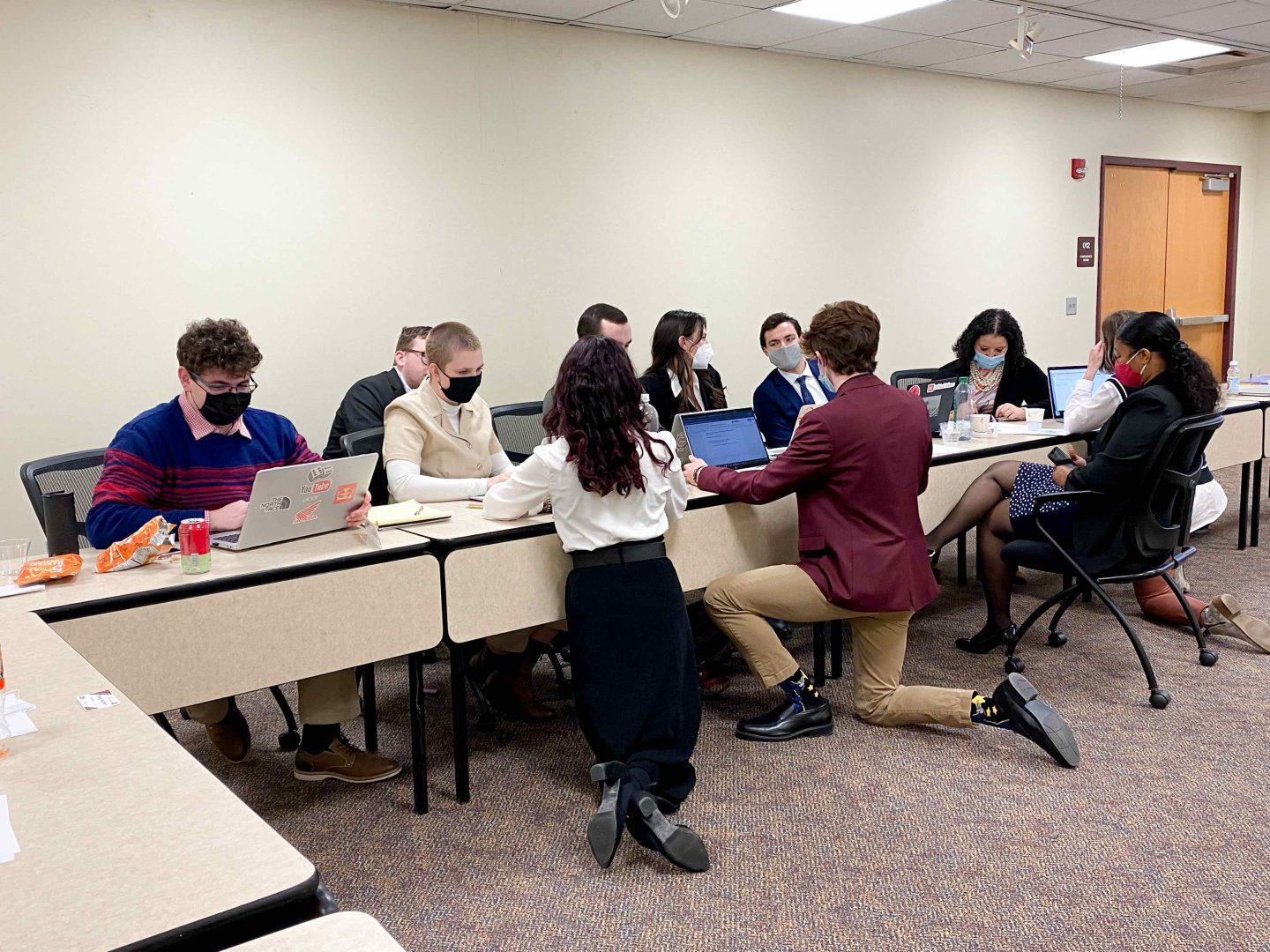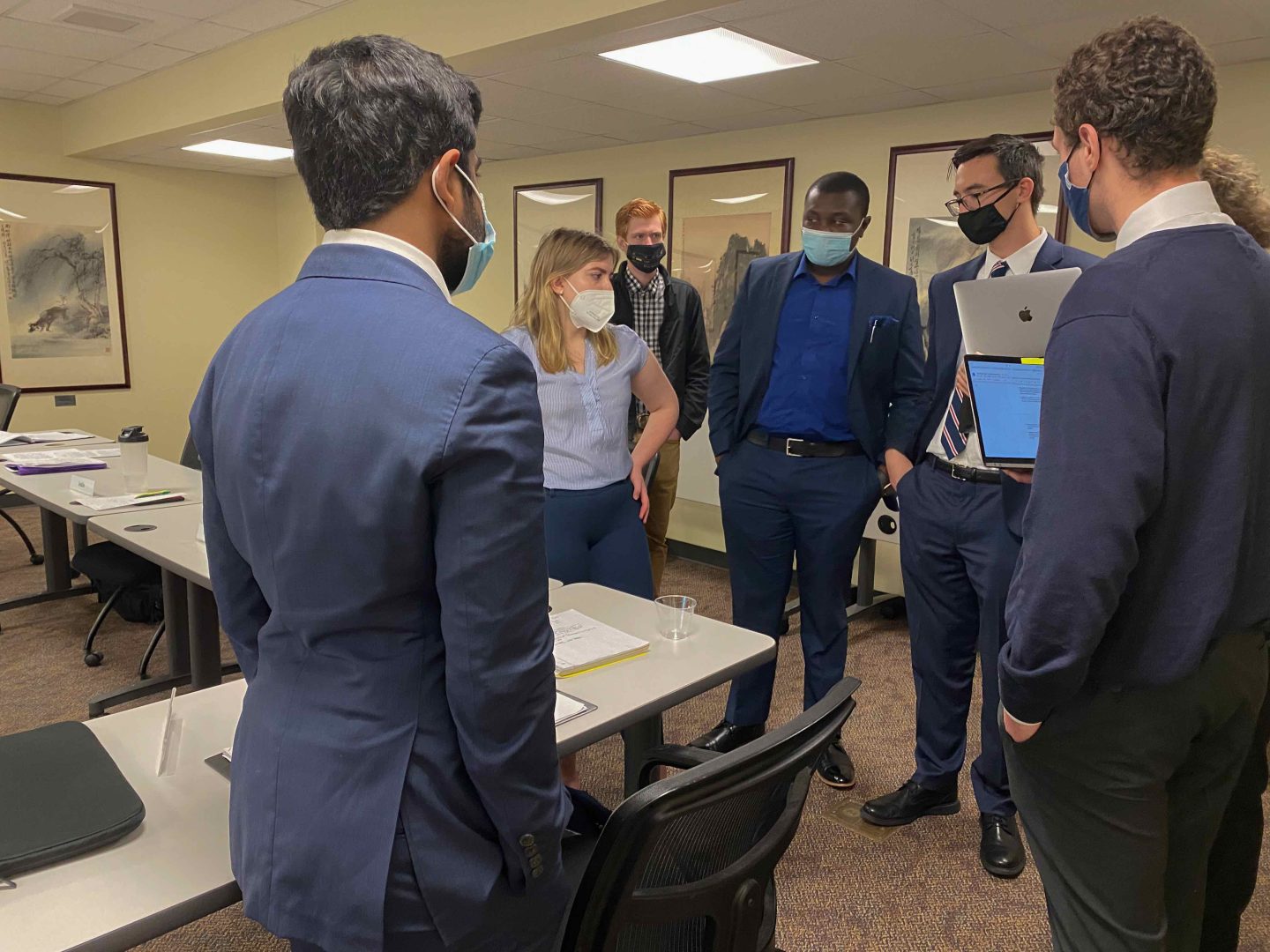The University of Indianapolis held the 42nd annual Model United Nations Security Council Conference for University Students (Model UN) this past weekend with four schools in attendance, including UIndy. This year’s conference differed from last year’s because, as with COVID-19 being the reason for online classes, the conference last year was attended via Zoom. With the Model UN conference being in person this year, students were able to meet with delegates face to face to discuss agenda items presented to councils, according to Associate Professor and Graduate Director of the International Relations Program Jyotika Saksena.

The three participating schools included the University of Louisville, Indiana University South East and Manchester University for the first time, according to Saksena. Faculty advisers present from their respective schools were Jyotika Saksena from UIndy, Tricia Gray from the University of Louisville, Margot Morgan from IU South East and Gabriela Ramalho Tafoya from Manchester University, according to the conference schedule. This year’s conference, Saksena said, consisted of three councils with fifteen members each that discussed different current issues around the world. Agenda items included the Arab-Israeli Conflict, the UN political mission and humanitarian crisis in Afghanistan, the political and humanitarian crisis in Haiti and the civil war in Tigray.
“This year, we have three councils. And each council usually has 15 members, of those there are five that are permanent,” Saksena said. “So there’s [the] United States, United Kingdom, France, Russia and China. Then the rest are non-permanent members.”
With this year’s conference being in person after a year online, students were able to communicate face to face in council rooms to discuss agenda items and different country’s stances on the subject. According to junior international relations and philosophy major Ellie Wilson, students at last year’s conference attended councils through Zoom and branched off to discuss talking points on Discord to have private conversations within unmoderated caucuses.
“So obviously, that’s very different from being in person where we’re all able to communicate in various caucuses,” Wilson said. “Whether they’re moderated or unmoderated and can talk to each other in person as well as pass notes during the caucus, if there’s something we want to communicate to them more immediately. So those are some main differences.”
According to Saksena, the protocols taken for visiting schools were a required health check as well as masks worn regardless of vaccination status. Saksena said preparation for the conference was more difficult with social distancing being a factor in the process, and though students were assigned countries to represent in pairs, they were split into individual representatives for the councils.

“A part of at least three, four classes in the semester is spent in an actual simulation where they enact the conference, but among themselves,” Saksena said. “So that’s what we’ve been doing. But in terms of preparations, it has been a little hard won exactly in terms of the social distance and being able to find the right size of rooms that are available, because so many of the rooms that we had used in the past are now being used for classrooms.”
COVID-19 was a topic involved with discussions surrounding different pressing world issues, according to senior political science and international relations major Nasira Curry. Curry said safety measures regarding resolutions to humanitarian crises include the steps of COVID-19 protocol and making sure aid is received with attention to factors of the pandemic.
“COVID[-19] has been a catalyst for certain situations, especially for the Ethiopian situation, I believe, because they had to hold off on elections,” Curry said. “A lot of people in Ethiopia thought it was unfair, the President was there unfairly or illegally, so that’s what caused the conflict. So COVID[-19] has had detrimental things happen in other countries other than the United States.”
The Friday portion of the conference ended with the keynote speaker Cole Varga delivering his speech titled “The Urgency of the Afghan Refugee and Asylee Resettlement,” according to the conference schedule. The conference ended with participants being awarded first, second and third best delegates along with the delegate most in character, Saksena said.






